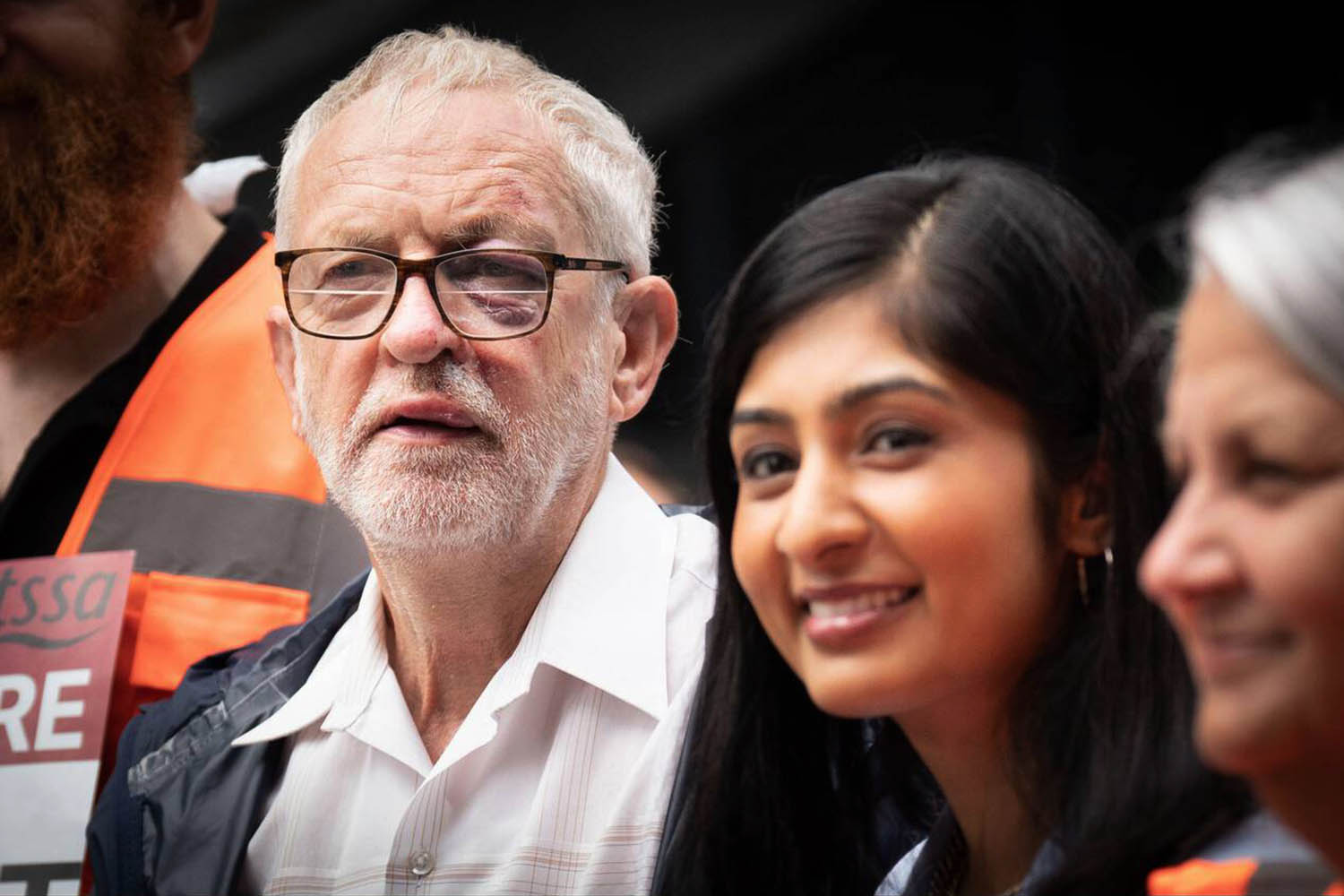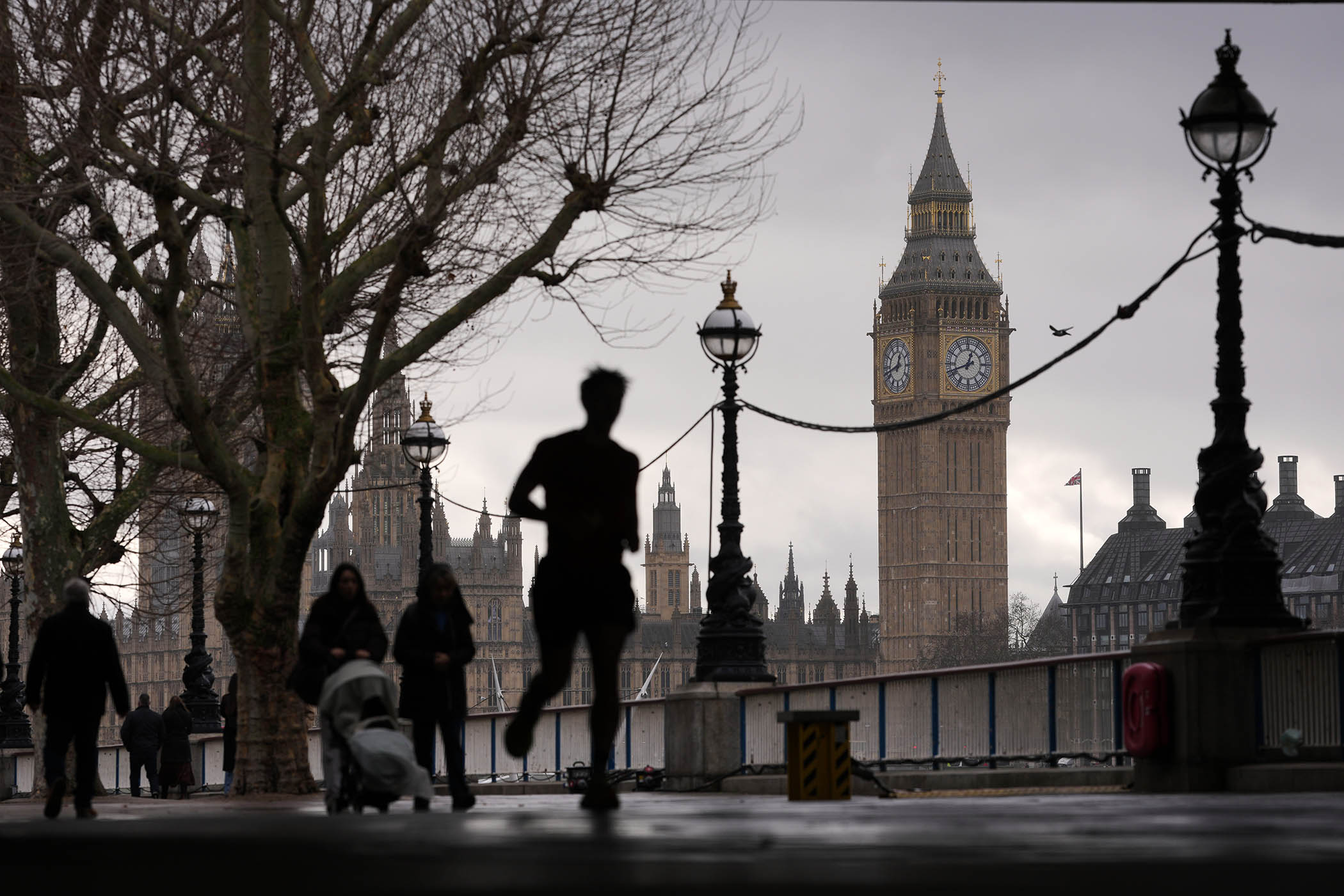Anyone inclined to shrug at the threat to Labour on its left flank should have a word with Jonathan Ashworth. He was one of the most ubiquitous faces of his party’s campaign at last year’s election. If there was a tricky broadcast interview to get through, the media managers deployed his reliable bat to defend the sticky wicket. When they needed a jovially robust face to talk up Sir Keir Starmer to journalists after one of the leaders’ TV debates, you could be sure to find Jonny sparkling in the spin room. It was felt that he could afford to concentrate his energies on the national campaign because he’d won his Leicester South seat at the 2019 election with a thumping 67% vote share and a majority in excess of 20,000. The clever young men with their spreadsheets at party HQ thought him rock solid. Except, it turned out that he was no safer than a sandcastle when the tide is rushing up the beach. His majority was blown away and with it his expectations of being in the Starmer cabinet when he lost the seat to Shockat Adam, a leftwing independent who cried “This is for Gaza” while holding aloft a Palestinian keffiyeh at the count. Mr Ashworth tells me: “By the last few days, I felt there was a juggernaut coming my way and it was too late by then to do something about it.”
Thangam Debbonaire would now be culture secretary, a job to which she looked well suited, if her life had gone to plan. She knew she had a fight on her hands in Bristol Central. The Greens, the largest party on the city council, were after the seat. She fought hard, but went down to defeat by more than 10,000 votes. Getting the boot is never pleasant. It is doubly distressing to lose your seat when the night is one of triumph for your colleagues who will fulfil their dream, as you will not, of sitting in cabinet.
The threat to Labour from parties to its left is almost certain to be more potent at the next election. There will be leftwing disillusionment with the Starmer government to exploit, and hoping to do the exploiting will be a new grouping revolving around Jeremy Corbyn and Zarah Sultana, both former Labour MPs estranged from the party. Their outfit has been launched in a messy fashion and does not yet have an agreed name. Jezbollah? The People’s Front of Islington? Votey McVote Face? have been among the suggestions. It is unclear how it will be led and who will be in charge. Ms Sultana, who is in her early thirties and has a bit of charisma, has implied that she expects to be co-leader. Corbyn fans say that the septuagenarian may not be a fresh face but he ought to be the figurehead because of his extremely strong name recognition among the public.
We can anticipate that they will offer a prospectus that includes a lot of nationalisation, higher taxes on the affluent and more generous welfare. It will seek to attract support among the substantial seam of voters who are disgusted by the horrors being perpetrated in Gaza and think Labour has not done enough to condemn the Israeli government. Colleagues of Sir Keir fear that his recent shift on recognising Palestinian statehood is too little and comes too late. The new leftwing party will attack Labour as hostile to migrants, antagonistic towards the poor, too close to business and hard to distinguish from the Tories.
The response from Labour loyalists has so far been dismissive, scoffing that Britons were twice offered a Corbyn-led party and twice rejected it. The second rebuff, at the 2019 election, saw Labour’s tally of parliamentary seats crushed down to its lowest level since 1935. This is true, and at the same time it misses the point about the new outfit.
It won’t be making the compromises with the broad electorate necessary for a party that is aiming to form a government. Even Mr Corbyn has probably realised by now that he is never going to be prime minister. The new party will be targeting the substantial wedge of leftwing voters who feel let down by Labour.
If they get their act together, this has the potential to be a highly menacing development
If they get their act together, this has the potential to be a highly menacing development
Since Mr Corbyn and Ms Sultana launched their new venture, they claim that more than half a million people have expressed an interest. A free sign-up is not the same as becoming a fully paid up, fully active member, but it is highly plausible that there is some appetite for their menu. Polling suggests that potential support for a new left party amounts to about 10% of the electorate. While nothing like enough to win a parliamentary majority, that is more than enough to wreak havoc on Labour prospects. In some constituencies an “unapologetically socialist party” could gather sufficient support to directly take seats off Sir Keir’s party. In other places, the threat is that the left vote is split in a way that allows a rightwing candidate to come through the middle to win. Lord Kinnock, the former Labour leader, mocks the Corbyn-Sultana outfit as “the Farage Assistance Group”.
One fear beginning to stalk Labour’s ranks is that the government finds itself fighting a two-front war, simultaneously besieged by populists to both right and left. Those casting their minds ahead to next May’s local elections see the potential for a new left party to have a substantial impact on contests in urban areas such as the inner-cities of London and Birmingham. Those thinking about the general election fear for the political futures of the health secretary, Wes Streeting (majority: 528), and the justice secretary, Shabana Mahmood (majority: 3,421). Says one Labour strategist: “It would be an absolute tragedy if Wes lost his seat. He’s at risk. Shabana is at risk. Whisper it, Keir could be at risk.”
The name-pending party has yet to elect a leader, draw up a constitution or stage a conference. It may ultimately fall apart or fizzle into irrelevance by succumbing to the self-indulgence, factionalism and acrimony that has been the perennial hallmark of the British left. Then again, you can argue that the way things are going means that conditions have rarely been more propitious for this kind of party. If they get their act together, this has the potential to be a highly menacing development for Labour. Sir Keir’s party will need to find an effective way of dealing with it. Dismissive sneering doesn’t amount to a strategy.
Photograph by Alamy
Newsletters
Choose the newsletters you want to receive
View more
For information about how The Observer protects your data, read our Privacy Policy



